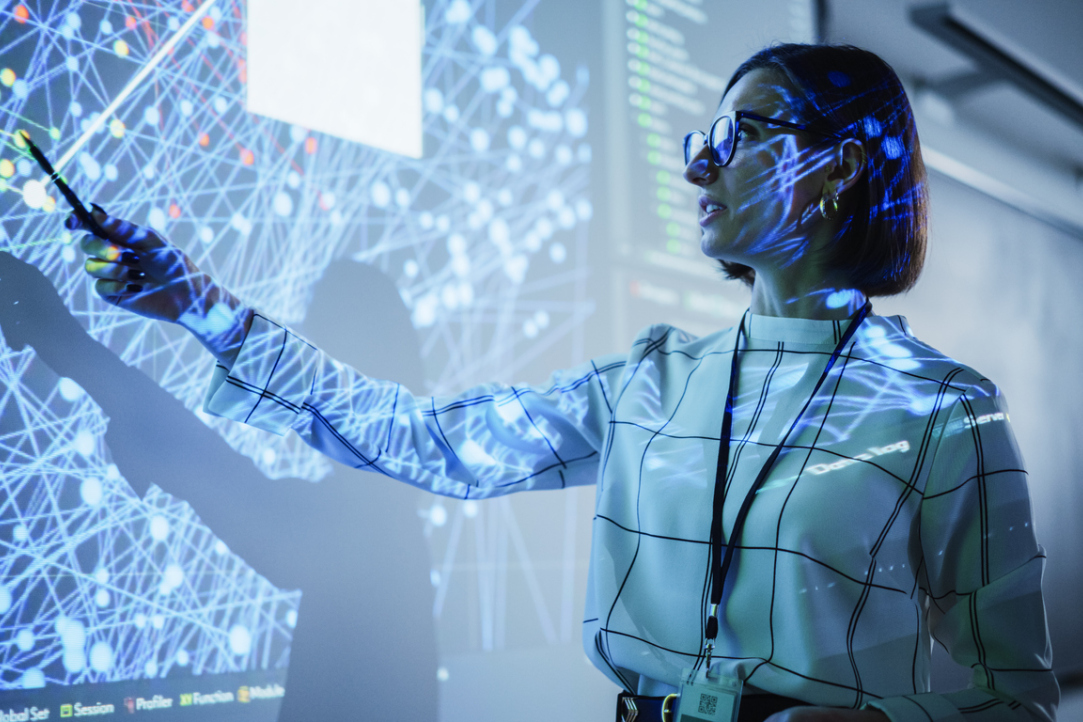White Papers of AI Conformity Assessment Published on HSE University Website

The Russian Technical Committee for the Standardization of ‘Artificial intelligence’ (TC164), together with the Chamber for Indo Russo Technology Collaboration and the RUSSOFT Non-profit Partnership of Software Developers, has published new White Papers related to Artificial Intelligence Conformity Assessment. It reflects the approaches to the standardization and ethical regulation of AI technologies in two pilot industries — healthcare and agriculture.
The Russian Technical Committee on Standardization ‘Artificial intelligence’ (TC 164) was established by order of Rosstandart in 2019. It regulates cooperation between interested organisations and the government in carrying out work on national, interstate and international standardization. Sergey Garbuk, Director for Research Projects at HSE University, chairs the committee.
Work on the White Papers project started in 2023 after the signing of a Memorandum of Understanding between CIRTC, TC164 and RUSSOFT.
The published analytical report consists of five sections. The first one is dedicated to the goals agreed upon by two states, Russia and India, in the field of conformity assessment of AI technologies, and more specifically, the conformity assessment of AI in healthcare and agriculture. The second section contains a list of AI tasks in both industries. The third section lists the existing AI solutions in the Russian and Indian markets in pilot industries. The fourth section highlights relevant national and international standards. The last section is devoted to approaches to the ethical regulation of artificial intelligence agreed upon by the two countries, as well as international approaches in this area.
The authors of the White Paper are Indian and Russian experts, including scientists from HSE University.
As part of the pilot project, the parties plan to develop quality assessment metrics for AI technologies participating in the pilot experiment and the quality requirements for applied AI technologies, including comparison with a human operator. The results presume unified standardization documents for Russia and India, which establish requirements for testing particular applied AI technologies in the field of healthcare and agriculture.
The first results of Russian-Indian cooperation in the field of standardization and conformity assessment of AI technologies will be presented at the summit of the heads of national standardization bodies of the BRICS member states, which Russia will be chairing in summer 2024.
After completing the pilot experiment, the researchers plan to create a joint laboratory for AI testing, as well as work on promoting testing methods to the level of international organisations for standardization (ISO/IEC, ITU).

Director for Research Projects at HSE University, Chairman of TC 164
We can overcome barriers associated with the use of artificial intelligence in areas where an incorrect decision can lead to threats to human health and life, and significant environmental and economic damage, through the standardization of requirements for testing methods of responsible intelligent systems, as well as through the objective confirmation of compliance of systems with established requirements in the field of functionality and safety.
Sergey Garbuk
See also:
‘HSE’s Industry Ties Are Invaluable’
Pan Zhengwu has spent the last seven years at HSE University—first as a student of the Bachelor’s in Software Engineering and now in the Master’s in System and Software Engineering at the Faculty of Computer Science. In addition to his busy academic schedule, he works as a mobile software engineer at Yandex and is an avid urban photographer. In his interview with the HSE News Service, Zhengwu talks about the challenges he faced when he first moved to Russia, shares his thoughts on ‘collaborating’ with AI, and reveals one of his top spots for taking photos in Moscow.
Scientists Present New Solution to Imbalanced Learning Problem
Specialists at the HSE Faculty of Computer Science and Sber AI Lab have developed a geometric oversampling technique known as Simplicial SMOTE. Tests on various datasets have shown that it significantly improves classification performance. This technique is particularly valuable in scenarios where rare cases are crucial, such as fraud detection or the diagnosis of rare diseases. The study's results are available on ArXiv.org, an open-access archive, and will be presented at the International Conference on Knowledge Discovery and Data Mining (KDD) in summer 2025 in Toronto, Canada.
Megascience, AI, and Supercomputers: HSE Expands Cooperation with JINR
Experts in computer technology from HSE University and the Joint Institute for Nuclear Research (JINR) discussed collaboration and joint projects at a meeting held at the Meshcheryakov Laboratory of Information Technologies (MLIT). HSE University was represented by Lev Shchur, Head of the Laboratory for Computational Physics at the HSE Tikhonov Moscow Institute of Electronics and Mathematics (HSE MIEM), as well as Denis Derkach and Fedor Ratnikov from the Laboratory of Methods for Big Data Analysis at the HSE Faculty of Computer Science.
AI vs AI: Scientists Develop Neural Networks to Detect Generated Text Insertions
A research team, including Alexander Shirnin from HSE University, has developed two models designed to detect AI-generated insertions in scientific texts. The AIpom system integrates two types of models: a decoder and an encoder. The Papilusion system is designed to detect modifications through synonyms and summarisation by neural networks, using one type of models: encoders. In the future, these models will assist in verifying the originality and credibility of scientific publications. Articles describing the Papilusion and AIpom systems have been published in the ACL Anthology Digital Archive.
HSE Researchers Develop Python Library for Analysing Eye Movements
A research team at HSE University has developed EyeFeatures, a Python library for analysing and modelling eye movement data. This tool is designed to simplify the work of scientists and developers by enabling them to efficiently process complex data and create predictive models.
‘Many Want to Create AI-Based Products and Become More Competitive’
In 2024, the online Russian-taught master’s programme ‘Artificial Intelligence,’ offered by the HSE Faculty of Computer Science, saw a record number of first-year students—over 300. What accounts for such a high interest in AI, how the curriculum is structured, and what new skills will graduates acquire? Elena Kantonistova, the programme’s academic director, shares more.
'I Would Like to Leave a Lasting Impact on Science'
Aibek Alanov pursues his own scientific research and leads two teams of scientists, one at HSE University and the other at AIRI. In this interview for the HSE Young Scientists project, he explores the parallels between today's AI researchers and early 20th-century physicists, discusses generative models, and shares his passion for bachata partner dancing.
HSE’S Achievements in AI Presented at AIJ
The AI Journey international conference hosted a session led by Deputy Prime Minister Dmitry Chernyshenko highlighting the achievements of Russian research centres in artificial intelligence. Alexey Masyutin, Head of the HSE AI Research Centre, showcased the centre’s key developments.
Drivers of Progress and Sources of Revenue: The Role of Universities in Technology Transfer
In the modern world, the effective transfer of socio-economic and humanities-based knowledge to the real economy and public administration is essential. Universities play a decisive role in this process. They have the capability to unite diverse teams and, in partnership with the state and businesses, develop and enhance advanced technologies.
AI on Guard of Ecology: Students from Russia and Belarus Propose New Solutions to Environmental Problems
An international online hackathon dedicated to solving environmental problems was held at HSE University in Nizhny Novgorod. Students employed artificial intelligence and computer vision to develop innovative solutions for image segmentation, predictive modelling (forecasting future events based on data from the past) of emissions and creating chatbots for nature reserves and national parks.


